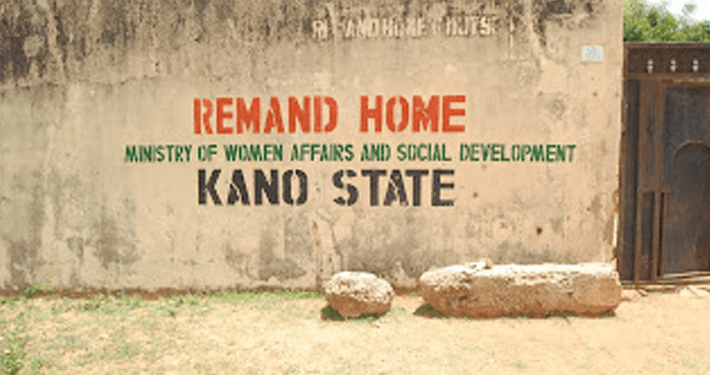Remand homes, also known as remand centres or juvenile detention centres, are facilities where children or young people are held in custody while awaiting trial or sentencing. They are typically used for minors who are accused of committing a crime and are awaiting further court proceedings.
Remand homes aim to provide a safe and supportive environment for these young individuals, often offering basic necessities like food, shelter, and education. However, the conditions and quality of care can vary greatly depending on the facility and location.
In Nigeria, remand homes face challenges like overcrowding, poor living conditions, and inadequate access to education and healthcare. Efforts are being made to reform and improve these facilities to better support the needs of the children in their care. Revamping remand homes in Nigeria requires improving living conditions, providing access to education, and healthcare
There is also a need to prevent corruption and abuse of power, establish clear policies, and increase funding. It also entails the training of staff on child rights and welfare to create a safe and supportive environment for children in conflict with the law.
Revamping remand homes in Nigeria involves improving living conditions, providing access to education, and healthcare. The goal is to create a safe and supportive environment for children in conflict with the law.
In Kaduna, the centre manager of the Sexual Assault Referral Centre Kafanchan, Grace Yohanna, explained that the centre had earlier this year referred a trafficked boy to the shelter, where he is currently receiving rehabilitation.
Ms Yohanna stated that since there were no remand homes in Kafanchan, such cases were usually referred to Kaduna.
In Katsina, Governor Dikko Radda has approved the suspension of key officials of the state’s Reformatory Centre, Babbar Ruga, over allegations of torture and mishandling of an inmate. The governor announced this in a statement recently issued in Katsina through the office of the secretary to the state government, Abdullahi Garba-Faskari.
The governor made the decision following the report of the committee mandated to investigate the allegations of torture and mishandling of an inmate, Usman Musa.
He said, “The principal of the centre, Abdulzahir Abubakar, the vice-principal, Bala Abubakar, and a porter, Yunusa Yusuf, have been suspended for their alleged roles in the incident. The incident tragically resulted in the amputation of the victim’s left hand and severe injury to the right hand. The action underscored the state government’s commitment to upholding human rights, enforcing accountability, and promoting reforms across all state institutions.”
The governor also ordered the immediate termination of Murtala Suleiman’s appointment as a casual employee of the centre, due to his involvement in the matter.
Mr Radda further approved ₦970,000 to cover the medical bills of the victim, as well as ₦35 million for the procurement of a sensor-enabled prosthetic hand to assist in his recovery and reintegration.
He also approved a recommendation of the investigation committee to upgrade the centre to meet international best practices in correctional management and inmate welfare. The governor mandated the committee, chaired by his Special Adviser on Public Administration and Service Reforms, Usman Isiyaku, to oversee the implementation of all approved measures. This is to ensure strict compliance and long-term reform at the centre.
In Kano, some experts have stressed the need for the rehabilitation and provision of skills acquisition programmes in the Kano remand home to aid the social integration of children after their release.
Some stakeholders in Kano said the centre lacked adequate facilities to provide education and vocational training for the inmates.
Umar Zailani, a clinical psychologist, said children who passed through remand homes without counselling and psychosocial support often suffer long-term trauma.
“Some of them come out more hardened because the environment is not structured to address behavioural change or mental health challenges,” she said.
A parent, Sani Isa, said the absence of follow-up measures after the release of the children was a major setback.
“When they return home, they need community support and monitoring. Without this, the chances of them relapsing into crime are high,” he said.
Another parent, Zara Aliyu, urged the authorities to ensure regular monitoring of the homes, stressing that children deserve opportunities for behavioural reform and growth.
Similarly, a sociologist at Sa’adatu Rimi College of Education, Bayero University, Kano, Nura Bala, stated that the purpose of remand homes was not only to discipline but also to reform.
“Skills acquisition such as tailoring, carpentry, ICT, and basic literacy will help the children earn a living and reduce the stigma they face when reintegrating into society,” he said.
(NAN)






